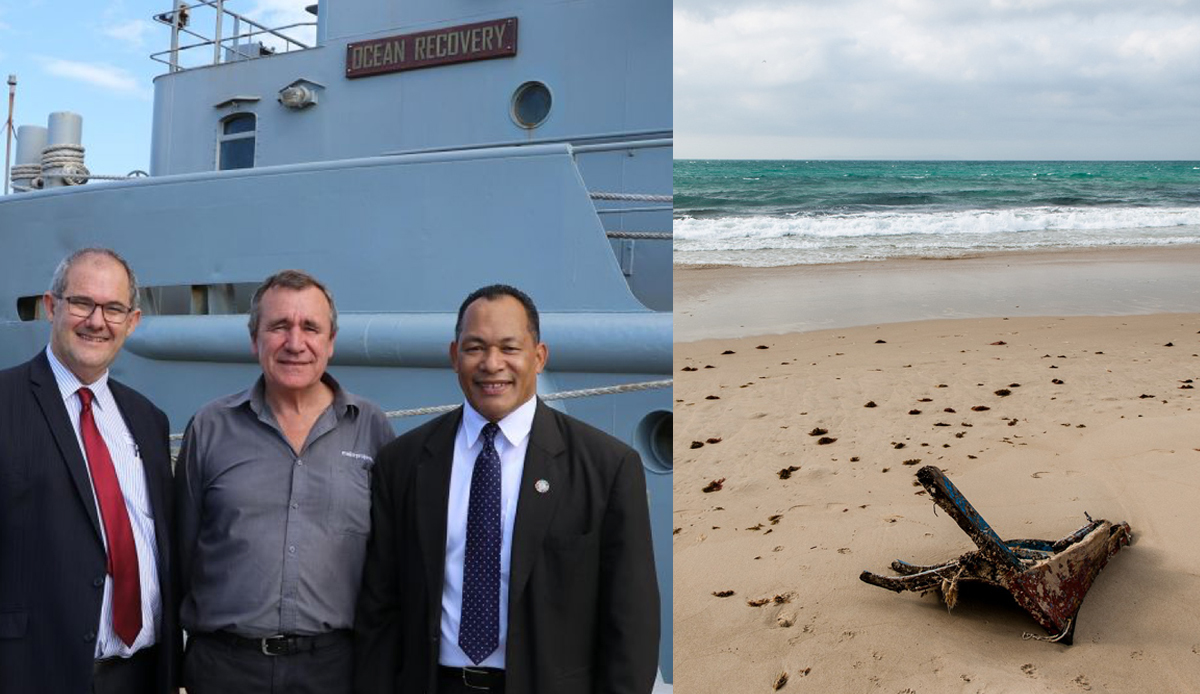Micro-organisms to be deployed in remediation of marine oil pollution
Partnership programme to target island ecosystems at risk from sunken World War II wrecks

The multidisciplinary remediation programme is the result of a partnership between Major Projects Foundation, the Secretariat of the Pacific Regional Environment Programme (SPREP) – an intergovernmental Pacific regional organisation made up of 26 members – and the University of Newcastle. It will see expert teams of scientists, engineers and marine archaeologists work with Pacific island communities to meet the challenges posed by the degradation of wrecks.
“We have a unique opportunity to focus on deploying science and engineering solutions to protect ecosystems and cultural heritage in the Pacific,” said Mr Kosi Latu, the Director General of SPREP.
Marine pollution is widely recognised as one of the four major threats to the world’s oceans, along with climate change, habitat destruction and over-exploitation of living marine resources. Spills of oil and other chemicals into the marine environment, both from ships and land-based sources, is a significant source of pollution.
Oil pollution not only has a detrimental effect on ecosystems, fauna and flora, but it can also lead to loss of amenities such as sandy beaches and markets for fisheries and tourism, as well as causing damage to boats, fishing gear, boat ramps and jetties.
MV Ocean Recovery, a refurbished ex-New Zealand Navy vessel provided by Major Projects Foundation, will allow the programme teams to explore priority shipwrecks.
Paul Adams, Director of Major Projects Foundation, stressed the urgency. “A few years ago, on a diving trip, we noticed oil leaking slowly from a number of wrecks,” said Mr Adams.
“Nearby communities are deeply worried about large amounts of oil spilling out when the wrecks collapse completely. There are only a few years left before rust takes its toll.”
Using expertise from marine archaeologists and historians, the programme will identify wrecks posing the biggest risk of an oil spill. Once identified, sub-sea engineers and bioremediation experts will look at a number of possible techniques to prevent oil spills.
These could include hot-tapping to pump out the oil directly from the tanks; cathodic protection of the ship’s hull to prevent it from rusting further and to stimulate marine growth on the wreck, making it structurally stronger; and using bacteria known to eat and breakdown oil, a process known as bioremediation.
As part of the partnership, the University of Newcastle has funded a PhD student, Awei Bainivalu, to develop novel bioremediation technology for oil remediation based on microorganisms able to simultaneously increase oil bioavailability and degrade oil.
Awei is one of three Pacific Islands students who have received scholarships to undertake research focusing on the environmental protection of vulnerable island and ocean ecosystems that will directly benefit their communities.
The students received their scholarships through the Global Impact Cluster for Energy, Resources, Food and Water (GIC ERFW). The GIC ERFW proffers UON’s well-established research strengths harnessed by its flagship Research Institute – Newcastle Institute for Energy and Resources (NIER) to support focused industry engagement, transdisciplinary research collaboration and commercial output.

